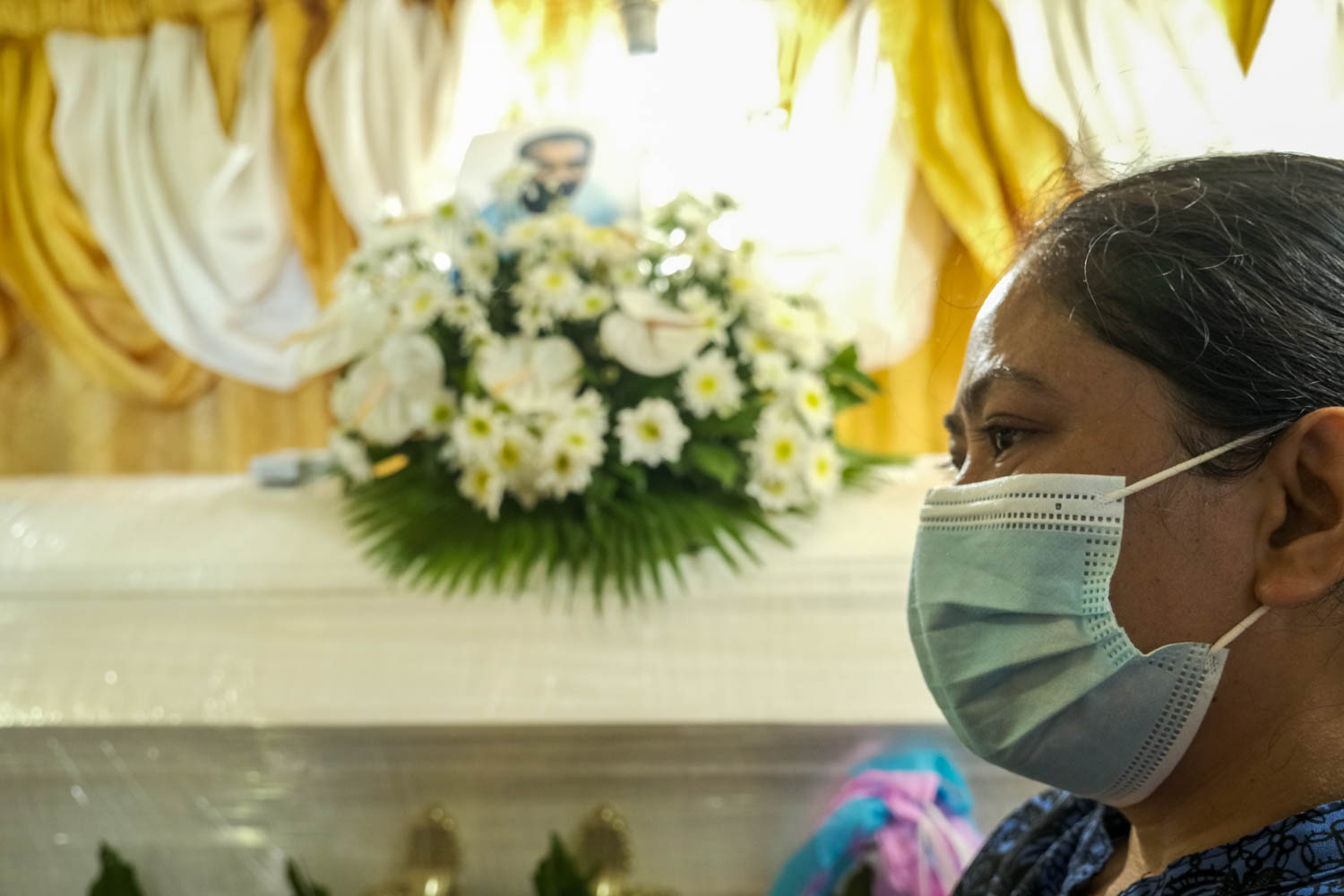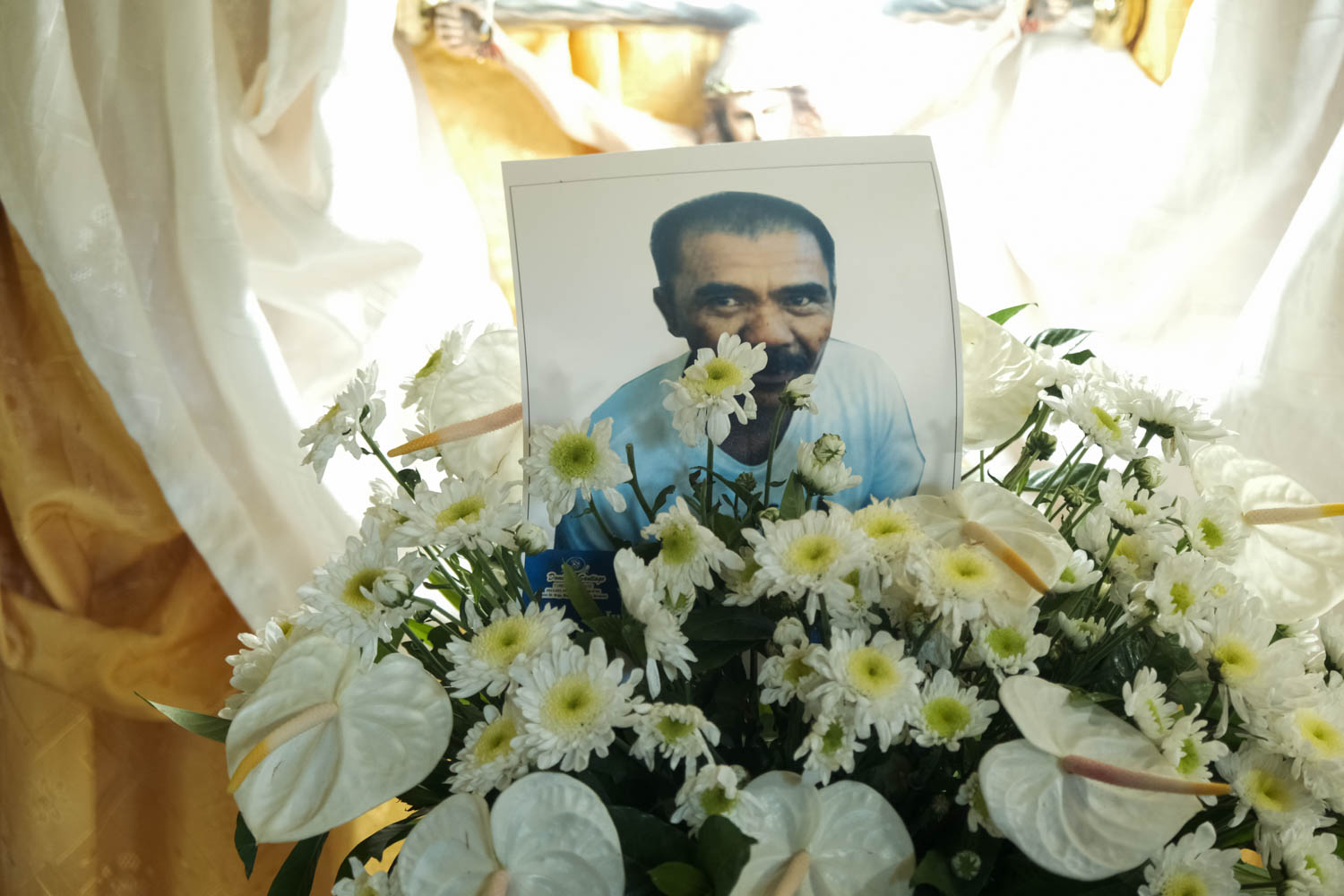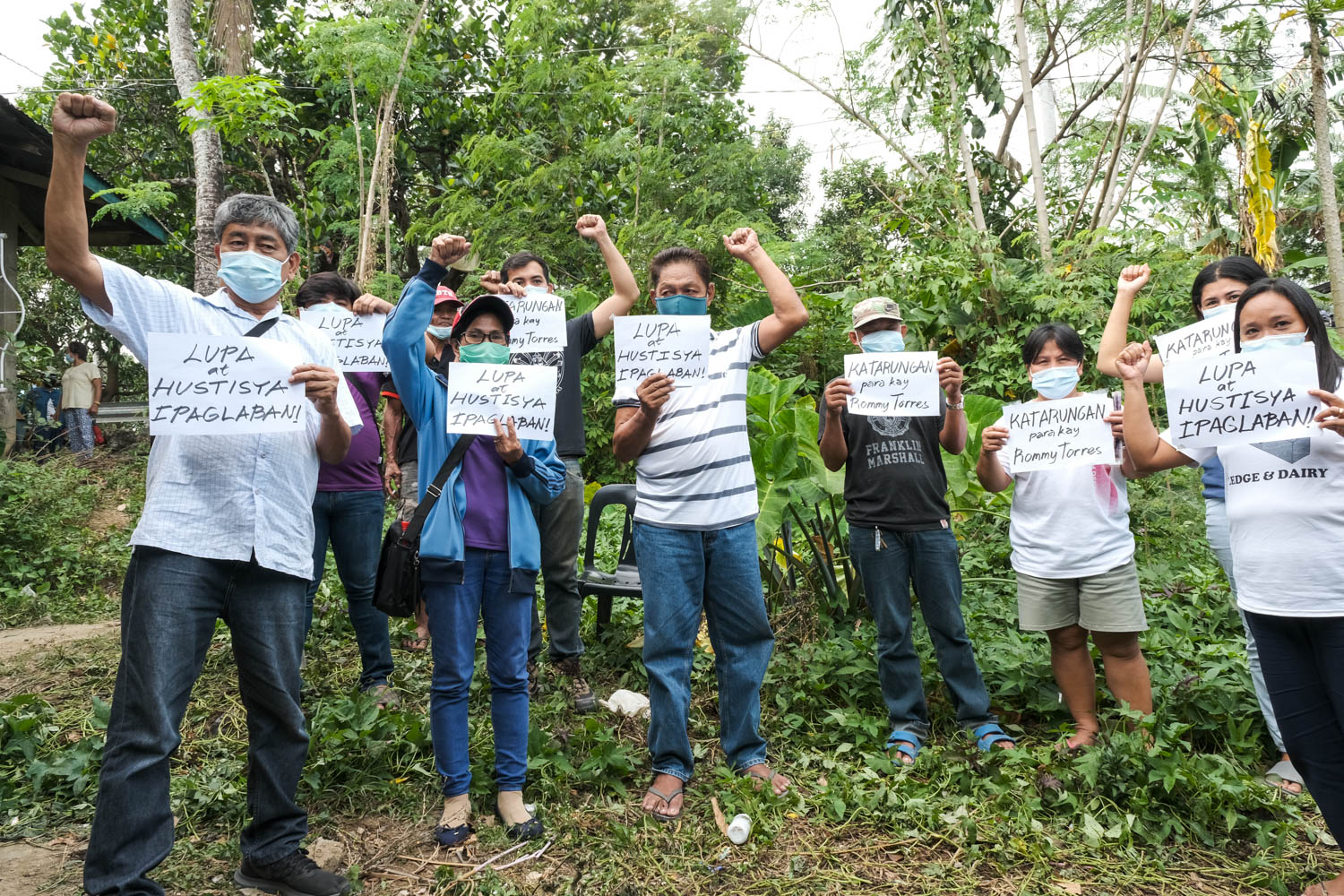Manila, Philippines—On the morning of February 3, Romeo “Rommy” Torres headed to his farm carrying sacks that he usually fills with a harvest of bananas. Rommy sells his produce either by the roadside, or in agroecology markets organised by his association of small farmers. They grow local crops and don’t use chemical inputs. But for the past year, farming had become nearly impossible.
The 75-hectare land that once was a thriving farming community has now been fenced off by Royal Moluccan Realty Holdings, Inc. (RMRHI), a real estate company with whom the farmers have been locked in fierce struggle since 2007. By the end of 2019, after several farmers’ houses were burned and farmers were repeatedly shot at by roving armed goons, all remaining families were ultimately forced to vacate the fertile land located in Sitio Compra, San Mateo village, Norzagaray town, Bulacan province (55 kilometers north of Manila).
Some farmers looked for jobs and others became farmworkers in someone else’s land. But Rommy was among the few who continued to go inside the forbidden land to farm. “It was not just a matter of him simply going back to harvest his produce. It was his own way of asserting the right to land,” said Marco, an organiser for the Peasant Movement of the Philippines (KMP).
On February 5, two days after being last seen by neighbours heading beyond the fences erected by the company, Rommy was found dead and stuffed inside a plastic drum abandoned by a creek in Laguna province, more than 100 kilometers from his home. He was hogtied and had gunshot wounds in the mouth, chest, and back, according to local police.
It was a closed casket wake—the body was already in an advanced state of decomposition when it was found. “I couldn’t bear to look at the photos. We were only able to identify him by his moustache and the red shirt he wore,” said Jovita Torres, Rommy’s wife.
Before the murder, RMRHI had already ramped up its harassment of farmers. On January 18, Salvacion Abonilla, John Jason Abonilla, Jenny Capa, Marilyn Olpos, Catherine Magdato, and Eden Gualberto were arrested. They are among the 14 farmers whom the company charged with theft last January 2020. But KMP insists that the charges are ludicrous, as there can be no theft involved in “simply picking fruits from trees they themselves planted.”
The farmers’ group nonetheless had to scrape together enough resources to bail out the farmers who were arrested, as well as those with pending warrants—which includes Jovita. In fact, she had to go to the city hall to post bail the morning of her husband’s wake.
Jovita said that it was not even possible for her to steal anything, as she has been away working since late 2019. She relates how their eviction had forced them to rent a house adjacent to the land. But to have money to pay for rent, she had to work as a cook in another province. For the past year, pandemic restrictions prevented her from coming home.
“I didn’t even see him during the holiday season. I never imagined I would be coming home for his funeral,” Jovita tearfully said.

Rommy’s fellow farmers recall how courageous he was. “While others were intimidated and kept silent, and still others allowed themselves to be bought out by the company for PHP 30,000 (USD 620), Rommy stood his ground,” said Silvio.*
“Last December, the guards already shot at him when he went to harvest the citrus fruits from my orchard. He said that he didn’t want to see the fruits to go to waste,” said Ramon.*
Both Ramon and Silvio are no strangers to bullets. Silvio recalled how in 2019, when they were still occupying the land, he was cooking rice cakes in his kitchen when the company’s goons fired at him. Meanwhile, Ramon was also allegedly shot at by RMRHI guards when, like Rommy, he was trying to bring out his harvest.
They believe that whoever killed Rommy had planned it. “Most likely, he had already cut down his bananas the day before; so they knew that he was coming back for it the next day, and waited for him,” said Ramon.

Rommy Torres is the 315th farmer to be killed under the current administration of Philippine president Rodrigo Duterte, according to KMP. Based on PAN Asia Pacific’s (PANAP) Land and Rights Watch 2020 year-end monitoring, the Philippines has the second-highest number of killings related to land conflicts, next only to Colombia. The trend has continued on.
The farmers of Norzagaray are still pushing the Department of Agrarian Reform (DAR) to implement an earlier decision to award them the land as beneficiaries of the government’s land reform program—a decision that was contested by the company and the subject of ongoing legal battles. (Read our earlier story)
But the KMP believes that by failing to defend the farmers’ rights to land, the DAR is also to blame for Rommy’s death. “This would not have happened if the DAR had prevented the forced eviction of the farmers in Sitio Compra. But what can we expect from a government that always sides with landgrabbers?” said Danilo Ramos, KMP chairperson.
The eviction of farmers in Sitio Compra ended a thriving “bungkalan” or collective farming that KMP, PANAP’s local partner, had introduced to promote agroecological methods and as a form of farmers’ assertion of their right to land. Their displacement also strained the community’s much needed food supplies to survive amid the pandemic, as well as the income they used to get from selling their organic produce.

When restrictions were tight, Rommy used to sell his bananas by the roadside—in the same spot where a tarpaulin that announces his wake now sways lightly in the breeze.
According to Jovita, “I want justice for my husband. He doesn’t deserve to have his life taken away like that. Nobody should have to die just because they need to eat and survive.” ###
*The names of interviewed farmers have been changed to protect their identities.








Discussion about this post